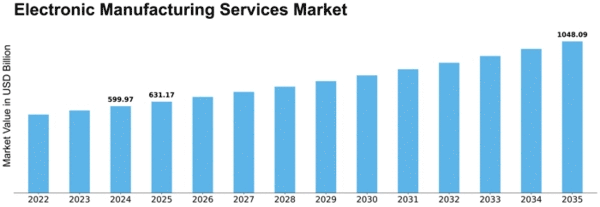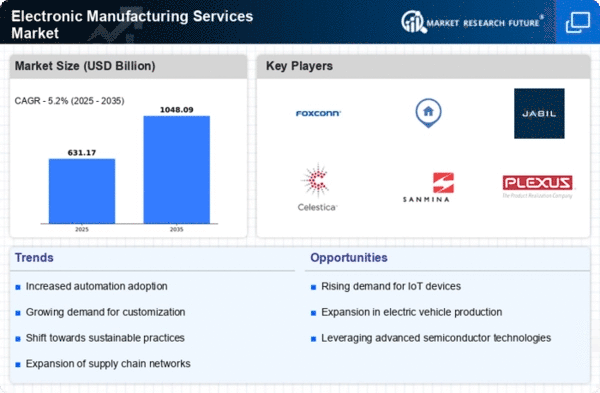Electronic Manufacturing Services Size
Electronic Manufacturing Services Market Growth Projections and Opportunities
Several things affect the general trends of the Electronic Manufacturing Services (EMS) market size. One important factor is that technology is always getting better. The fast rate of technological progress in the electronics business has a big effect on the EMS market. To keep up with new technologies and keep getting better at what they do, EMS providers have to keep up with the demand for specialized manufacturing services as electronic gadgets get smarter and more complicated. Regulations have an effect on the EMS market as well. For EMS providers to do business around the world, they have to follow worldwide standards, industry rules, and local limits. Following strict quality and safety standards and figuring out complicated legal systems makes the market even more difficult to understand. Innovation is a big part of how the EMS environment changes. In order to stay in business in the electronics industry, EMS companies have to spend money on research and development. One important thing that determines the market standing of EMS companies is their ability to come up with new ideas. This could be through better manufacturing methods, product design, or integrating new technologies. Important factors that drive the EMS business are consumer desire and end-user tastes. How much and what kind of production services are needed is directly related to how much and what kind of tech gadgets people want to buy. EMS providers have to be quick to adapt to changes in the market, customer tastes, and the need for certain things. For long-term success in the competitive EMS market, you need to be able to predict and respond to these changes.



















Leave a Comment